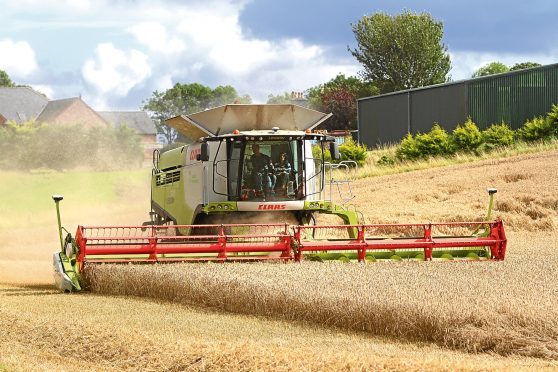With an upturn in whisky production on the cards, a leading maltster yesterday told farmers that they would need to sustain increased barley production levels to meet demand – or face the prospect of some of the major distilling companies tying themselves into long-term commitments for imported malting barley.
Speaking at the Scottish Agronomy annual conference in Perth, Bob King, commercial director with the Crisp Malting Group, told farmers that the supply chain needed stability and end-users such as the major distillers needed a commitment to sustained production levels to build into their long-term programmes.
However farm manager David Aglen, from Fife, expressed the audience’s view that this story had been heard before.
“We have often been told to build relationships with these buyers – but whenever more barley comes on to the market the price drops.”
Mr King replied that while there had been a lack of communication in the past, the buyers were now beginning to realise that they needed to take some long-term action to ensure the provenance on which they relied.
And he added that with Brexit raising the possibility of tariffs on grain going out and coming in from Europe, both farmers and distillers could benefit from a closer working relationship.
But Mr King warned that the displacement of Scottish-grown barley was already happening, with much of the demand for high diastatic power (DP) malt used in the production of grain whisky now being supplied by producers in Scandinavia, who produced barley which was consistently over 2% nitrogen.
Meanwhile, an advanced warning that Scottish growers could be forced to face life without glyphosate was also given to the meeting by Mr King.
Stating that his own company had no problems with the science behind the use of the herbicide, he said the writing was on the wall across mainland Europe.
“At the moment UK brewers are pretty much alone in accepting crops for malting which have been sprayed pre-harvest with glyphosate,” said Mr King.
“For, while the science might say one thing, public opinion is saying another – and the big brewers on the Continent are now stipulating that such treatments should be avoided.”
But he said that nothing had so far been decided in the UK.
“At the moment some of the brewers in the UK are gauging the levels of glyphosate usage around the country – but while no decisions have been made, it’s pretty clear that we are out on a limb.”
He was unaware of the approach being taken by the distillers, but the fact that they had to look five, 10, 15 or more years ahead in their production cycle indicated that they would be unlikely to buck any trend.
